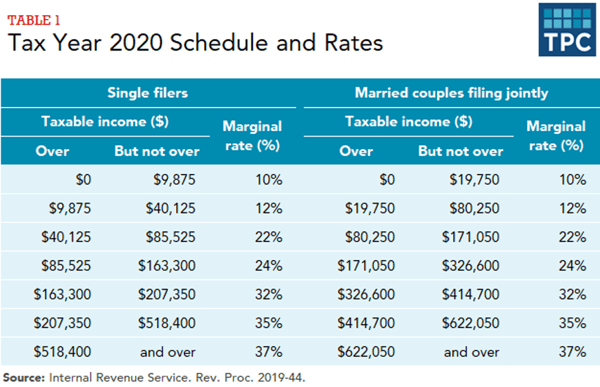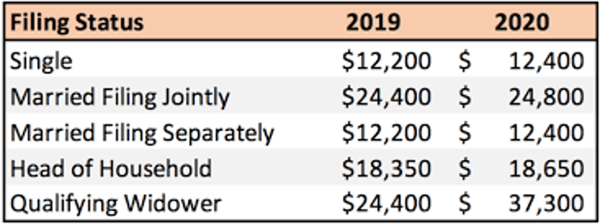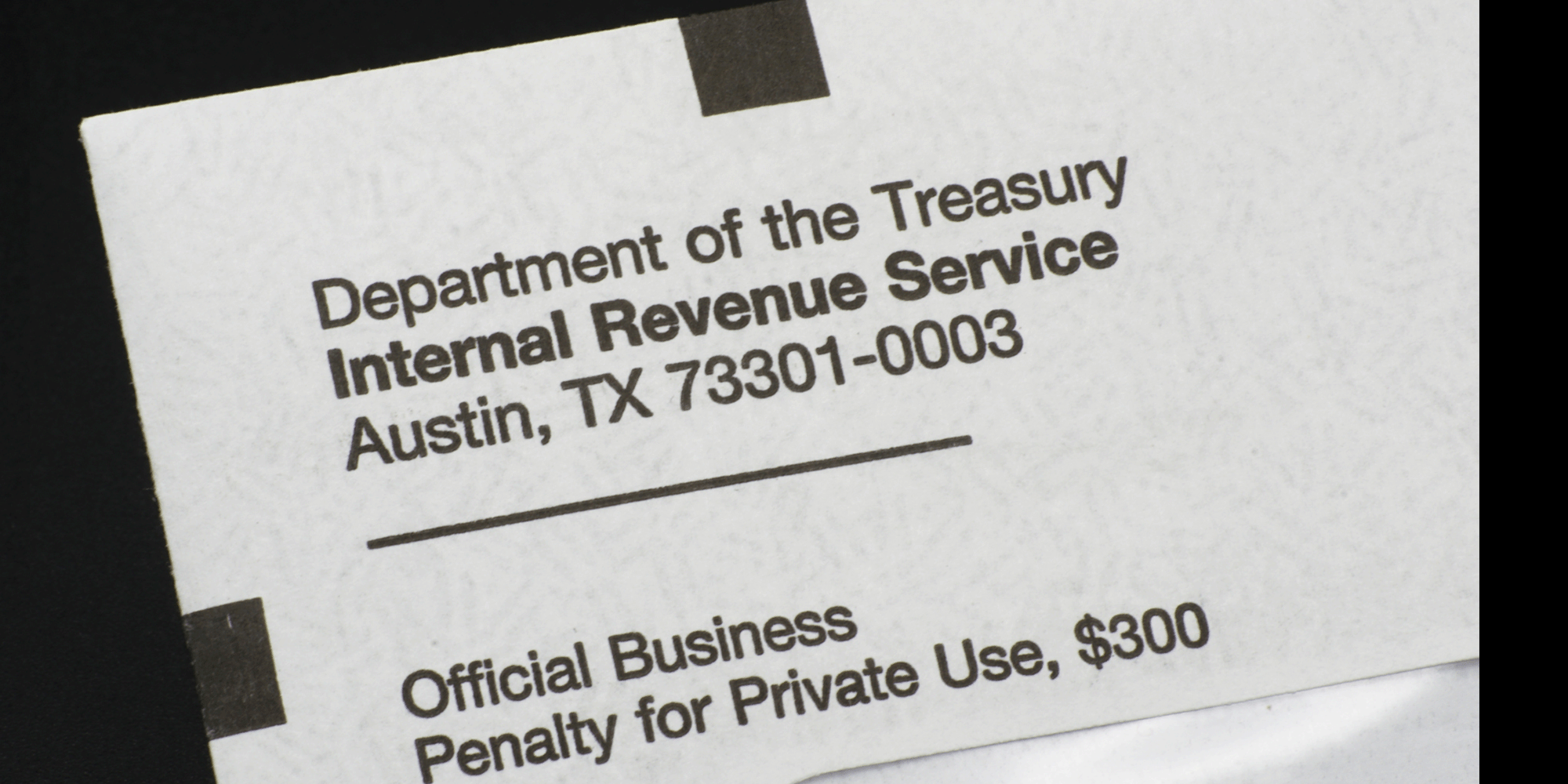What's Changed for Your 2020 Taxes?
There are quite a few changes this tax season compared to last: in large part, due to the pandemic.
In short, although the filing period began later than usual, Tax Day in 2021 is still Thursday, April 15, as of this point in time. If you were a victim of last month’s winter storms in Texas, you’ll have until June 15. And the standard deduction increased slightly across filing status’ as it does every year.
We stay on top of it, so you don't have to, but let's go through some of the big changes for this year.
Income brackets
For 2020, the tax rates remain the same, but the brackets were adjusted slightly (a few hundred dollars) from the previous year to account for inflation.
Keep in mind no matter which tax bracket you're in, it doesn't mean all your income is taxed at that rate.
For example, if you're single and make $50,000 a year, a portion of your income is taxed at 10%, another at 12%, and the rest at 22%.

Credit: The Urban-Brookings Tax Policy Center
Tax Deductions
The standard deduction also went up a few hundred dollars, depending on your filing status.

A question we're often asked is whether to take the standard deduction or itemize your deductions. Of course, everyone's situation is different, so the answer is it depends.
But if you contribute to charities, had substantial medical bills this past year and incurred mortgage interest and property taxes then itemizing your deductions might be the better option for you.
If you're self-employed, have a side gig, or have considerable related self- employment expenses then a Business Profit or Loss Statement (Schedule C) is appropriate for you.
The only way we'll know for sure is for us to review your information. Give us a call to determine what's the best course of action for you.
Tax Credits
Did you know that 20% of taxpayers who are eligible don't claim the Earned Income Tax Credit on their taxes?
First off, what's the difference between a deduction and a tax credit? A deduction lowers the amount of income that is subject to federal income tax while a tax credit lowers your tax bill, and if it's a refundable tax credit, the difference can be paid out as a refund.
The Earned Income Tax Credit (EITC) helps out workers earning up to $56,844 during 2020. How much depends on your income, filing status, and the number of children you have, but it can save you anywhere from a few hundred to a few thousand dollars on your taxes. By having a tax pro do your taxes, you can avoid being a part of the 20% I mentioned above.
The Child Tax Credit allows you to claim up to $2,000 per qualified child as long as your income doesn't exceed $200,000 for single parents and $400,000 for married couples. This one is a refundable credit, which means your family can receive up to $1,400 per child as a refund.
These are only the tip of the iceberg. There are many credits and deductions available, depending on one's situation. That's why it's important for an experienced and qualified tax professional to do your taxes.
Stimulus Checks, PPP Loans, and Unemployment Benefits
If you received a stimulus check, be assured it will NOT count as taxable income. Instead, it's being treated as a refundable tax credit, which means it may affect the amount of your tax refund.
For those who received Paycheck Protection Program (PPP) loans, you are still able to deduct eligible expenses you paid with those funds. Also, if you used your loan for business expenses - such as payroll, rent, and utilities, for example – it's possible your loan will be forgiven. Contact us today to see if this applies to your situation.
If you received unemployment benefits, keep in mind that you will still need to pay income taxes on that money.
2020 is year many of us want to forget. It also made filing your taxes a bit more complicated. Contact us today to ensure you receive the maximum refund possible.
Call me now and let's get your appointment scheduled. The sooner we can get started on your return, the better.
Best regards,
Kenneth Morris, EA
Call me: (678) 641-3193
Posts by Tag
- tax problems (49)
- tax services (41)
- How the IRS Works (40)
- Resolving tax debt (38)
- Offer in Compromise (17)
- Tax News (14)
- 2023 Taxes (12)
- filing deadline (7)
- Tax Relief (6)
- Tax Preparation (5)
- 2020 taxes (4)
- Tax Advice (4)
- Avoiding an Audit (3)
- IRS Final Notice (2)
- Save Money (2)
- Estate Planning (1)
- Prior year returns (1)
Recent Posts
Popular Posts
Where's My Refund?
Just wanted to give you a...
An Offer-in-Compromise (OIC) is an agreement...
IRS IS CRACKING DOWN
The IRS has made it...

